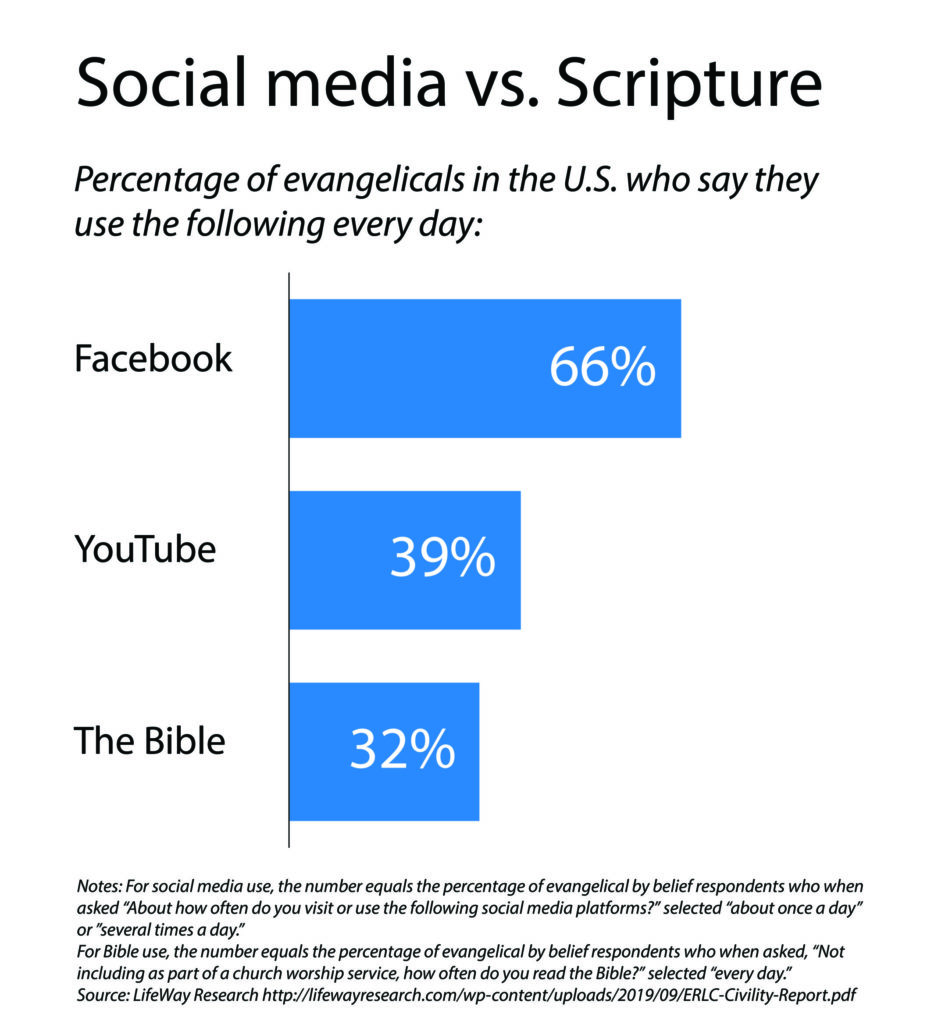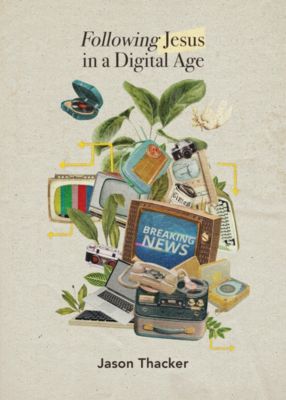
Helping confused churchgoers navigate culture with AI will require skill and grace. Here are five principles to consider.
By Aaron Earls
When you aren’t sure of the answer to a question, what’s your first response to try to find out? Chances are, you turn to Google. That may work when you’re trying to find out the author of a book or the winner of the first Super Bowl. But what about when you have a theological question?
We’ve been trained to turn to technology for answers when we’re confused, and theology confuses most Americans, including churchgoers. Almost 3 in 5 U.S. Protestant churchgoers (57%) admit they find it challenging to make sense of the Bible when they read it on their own. The biennial State of Theology study demonstrates just how confused Americans (and even churchgoers) are when it comes to understanding God and His Word.
When faced with questions and confusion, where do you think your congregation will turn? Some churchgoers may be more likely to ask ChatGPT than text their pastor when they aren’t sure how to interpret a Bible passage. Instead of going to their small group leader for encouragement, some may turn to an app on their smartphone that lets them “talk to Jesus.” In today’s culture, others may even ask an AI chatbot to write its own version of Scripture to affirm their viewpoints. Even now, evangelical Christians are more than twice as likely to open Facebook than their Bible on any given day.

For pastors and church leaders, helping confused churchgoers navigate the future with artificial intelligence (AI) will require skill and grace. Here are five principles to think through personally and congregationally.
1. Recognize how technology is constantly shaping us
Part of the issue is not being aware of when and how technology is shaping us. Just think about the example of wondering who the winner of the first Super Bowl was. We have been trained to take out our phones and search online for that answer. We don’t ask another person or find a trusted institution. This trains us to associate the internet and technology with knowledge and answers.
Technology does not exist simply as a tool to use, but also as one that transforms and even disciples the user. By simply being aware of this effect, users can work to negate some of the shaping. Take steps to reduce your tendency to always turn to tech for your answers.
“Churches and leaders who demonstrate trustworthiness and model healthy tech use will stand out in an AI-generated culture drowning in fakeness and unable to interact with people as individuals.” — @WardrobeDoor Click To Tweet2. Understand our identity as humans
As we encounter computers that seem more like humans, we often diminish the humanity of other people. We personify machines and dehumanize others. ChatGPT doesn’t mean anything by using the symbol “I” in a written response to a question. You and I are human beings created in God’s image.
We may take this theological truth for granted in the abstract, but how often do we treat ourselves or others in a machine-like manner? Do we judge our worth and value based on how much we produce? Do we keep pushing ourselves to do more and ignore God’s invitation to rest and Sabbath?
3. Challenge unstated assumptions
When discussing technology, we often come from underlying philosophical foundations that go unchallenged. As our culture moves forward with AI technologies, we must stop and think about why we feel the way we do.
Some assume that all tech advances are always good. They take a pragmatic view. “If this can help me tell one more person about Jesus, it’s a good thing.” But that fails to consider any ethical guardrails that Scripture places on the methods we use to evangelize. Others may take a more skeptical view and assume every new technology is bad. That ignores the advances that God has used both in Scripture and church history to advance His kingdom.
“Technology does not exist simply as a tool to use, but also as one that transforms and even disciples the user.” — @WardrobeDoor Click To Tweet4. Cultivate the right types of dependency
“I couldn’t live without my phone.” Most of us may not say that out loud but we’ve all experienced that sense of panic when we think we’ve lost our phone. As finite human beings, we cannot help but be dependent on things outside of ourselves. But as Christians, we need to develop good dependencies.
We shouldn’t be as dependent on our phones or Google today so in the future we aren’t even more dependent on AI. Work to deepen your dependency on God. A simple evaluation would be to consider what it is you turn to first when you wake up in the morning. Often, it’s our phones. Additionally, develop interdependency within the body of Christ. Pastors and leaders should demonstrate that one person can’t do everything. Ask for help and listen to the wisdom of others, even in theological matters.
5. Model healthy technology use
As you think through principles for technology, make sure you’re actually living that out. Like the parent always looking down at their phone lecturing their teenager about playing too many video games, our message won’t be well-received if we have an unhealthy relationship with technology.
Think through the other principles and find ways to practically apply those in your life. Maybe it’s moving your Bible reading off an app and into a physical copy of God’s word. It could be limiting your own screen time or pulling out a book instead of your phone when you have a question.
“If the gates of hell will not prevail against Jesus’ church, the body of Christ will overcome the technological challenges of our day and the days to come.” — @WardrobeDoor Click To TweetAs AI becomes more prevalent in our culture, people will likely become even less trusting. What happens to society when even seeing is no longer believing? Words could be written by an AI chatbot. Images and videos could be completely computer-generated. Institutional trust could decline even further.
There are certainly pitfalls for churches seeking to share the good news of Jesus, but there will also be opportunities. Churches and leaders who demonstrate trustworthiness and model healthy technology use will stand out in an AI-generated culture drowning in fakeness and unable to interact with people as individuals. If the gates of hell will not prevail against Jesus’ church, the body of Christ will overcome the technological challenges of our day and the days to come.
For permission to republish this article, contact Marissa Postell Sullivan.












